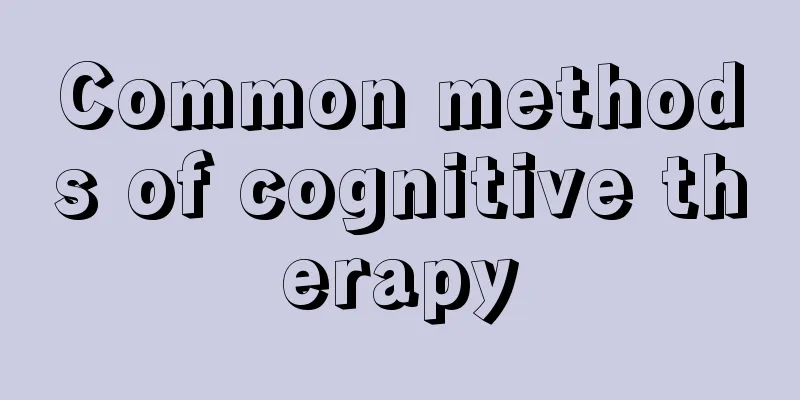Common methods of cognitive therapy

|
Many people feel very insecure about themselves. In fact, this is not a personality problem, but a disease. This disease is usually treated with cognitive therapy. Cognitive therapy is a method in which doctors guide patients mentally, allowing them to affirm themselves step by step. Slowly, the patients will become more confident. In the treatment process of cognitive therapy, doctors will use many methods, so what are the commonly used methods? Developed on the basis of cognitive theory, clients correct their original wrong thoughts and ideas about people, things, and themselves through re-education methods such as explanation and guidance from counselors, and rebuild their cognitive structure to achieve the effect of "realizing that today is right and yesterday is wrong." It is somewhat similar to our country's traditional ideological and political education. The main techniques include: cognitive-perceptual therapy and rational-emotive therapy. The task of cognitive therapy is to discover and modify cognitive biases. How to revise it? That is to question, inquire and debate, which is a major feature of cognitive therapy. Unfortunately, most people misunderstand the meaning of "debate", thinking that it means pointing out the cognitive errors of the person seeking help, refuting them one by one, and at the same time explaining the correct viewpoint to him with reason and evidence so that he is convinced. Build motivation for help In this process, it is important to recognize maladaptive cognitive-emotional-behavioral patterns. The patient and the therapist reach a consensus on the cognitive interpretation of their problem; explain the adverse symptoms and estimate the expected results that can be achieved by correction. For example, patients can self-monitor their thoughts, emotions, and behaviors, and therapists can provide guidance, instructions, and cognitive demonstrations. Adaptive cognitive correction In this process, patients are required to develop new cognitions and behaviors to replace maladaptive cognitions and behaviors. For example, therapists guide patients to apply new cognitions and behaviors extensively. Dealing with everyday problems Cultivate competition of ideas and use new cognition to confront existing cognition. During this process, patients should practice applying new cognitive models to social situations to replace the original cognitive models. For example, patients can first practice solving problems using their imagination or simulate certain situations, or they can be trained with actual experiences under certain conditions. |
>>: What does cerebral palsy look like
Recommend
A proven lung cancer prescription with the effects of clearing away heat, detoxifying, resolving phlegm and removing dampness
There are also many proven prescriptions for the ...
Which brain nerve nutrition solution is better
More and more modern people suffer from Alzheimer...
What is the reason for numbness on the soles of both feet?
In daily life, many people are prone to numbness ...
What to do if blisters grow in the nose
Blisters in the nose are also a common symptom. T...
What is the cause of bone cancer
In recent years, bone cancer has become one of th...
Is summer suitable for moxibustion?
Most people know that moxibustion is a treatment ...
For red and swollen acne without pus
Many people don’t know how to deal with red and s...
Is it good to drink crucian carp soup every day
Crucian carp soup is very nutritious. First of al...
What to do if there is too much moisture on the legs
Some people find that their legs are particularly...
Warm-up exercises before morning jogging
Morning jogging helps us improve our body's r...
What are the effects and functions of muscle-building powder
Muscle Gainer is a very useful protein supplement...
Will a normal esophagus develop esophageal cancer in four months?
Normal esophagus generally refers to the esophagu...
Things to note when taking a cruise for the first time
Nowadays, there are many means of transportation,...
What health supplements should I take if I have brain cancer
Brain cancer is a common malignant tumor in daily...
How long does it take to burn lobster to kill parasites
Summer is the season for eating crayfish. Many pe...









